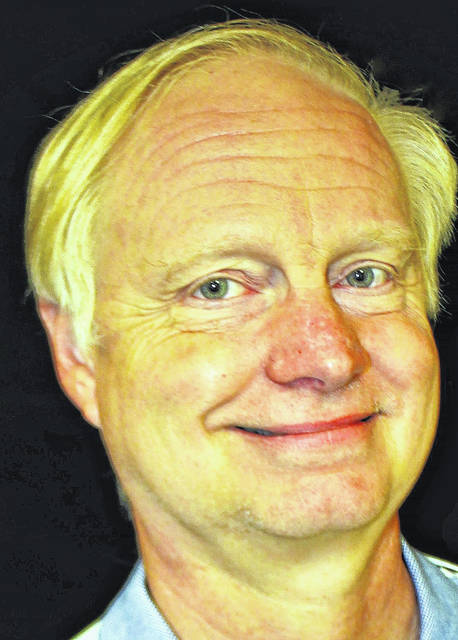
Politics and religion affect lives and avoiding talk about them seems a walled-in approach, whatever the advice of etiquette. Of course it’s true they can be volatile and sensitive subjects, and if we’re not careful, disagreement can get nasty.
That’s why I’m pleased our Congressman Steve Stivers (R-15th District) and Congresswoman Joyce Beatty (D-3rd District) created the Congressional Civility and Respect Caucus.
You may be aware that Stivers and Beatty are visiting schools and civic organizations in their districts to promote respectful dialogue on tough political issues. Here’s hoping a school in Clinton County will hear their presentation. (Maybe a local educator can contact Stivers’ staff for a fall visit. Hint, hint …)
In a phone interview with the News Journal, Stivers spoke about the Congressional Civility and Respect Caucus.
“Joyce [Beatty] and I are convinced it’s not about avoiding disagreement, but it’s a way to encourage people to have real conversations and listen and learn from each other,” he said.
In an April piece for TheHill.com, Stivers and Beatty again seem to encourage having dialogue on tough issues in the first place.
“In short, the Civility and Respect Caucus is about listening to each other, because often the conversations alone make us better,” their jointly written article concludes.
So a first step is for someone to start a conversation on a controversial matter. And the next step is key, too: Conducting the discourse in a way where we really listen and, we can hope, where we learn and grow.
Let’s look at a guideline that can help the tone and outcome of conversations on disputed topics. Although it’s a challenge to put into practice, it’s worth the effort.
The model is this: Be more interested in the truth than in your own opinion.
British philosopher Bertrand Russell recommended that type of approach for truth-seeking in general, but it also applies to dialogue on emotionally charged issues.
This attitude lends itself to asking questions of the other person in the dialogue — not questions meant to be “gotcha questions,” but questions raised out of a desire to learn and understand. After all, who has a monopoly on truth? Or on life experiences?
In the same vein, let’s consider drawing a contrast between two types of discourse on controversial matters. We will call one type a discussion, and call the contrasting type a debate.
In a debate, the participants treat it like it’s yet another arena for competition — namely, that it’s a contest with a winner and a loser. As defined here, the debater is more interested in being declared the winner than in gaining understanding.
A discussion, on the other hand, can refer to a conversation where the participants try their darndest to be more interested in truth than in their own position.
Christopher Phillips in his book “Socrates Café: A Fresh Taste of Philosophy” even suggests that the parties in a dialogue “help one another articulate” their perspectives. Such a useful approach is an example of collaboration, not competition.
And while we’re at it, how about Isaiah 1:18 in the Bible? “ ‘Come now, let us reason together,’ says the Lord.”
Whether it concerns domestic or foreign policy, ethics or religion, two heads can be better than one — especially if they’re not butting.
Huffenberger is a News Journal staff writer. Reach him at 937-556-5768 or [email protected] .


